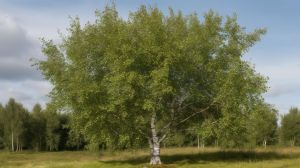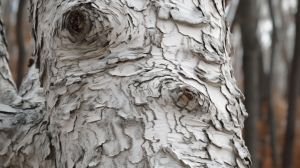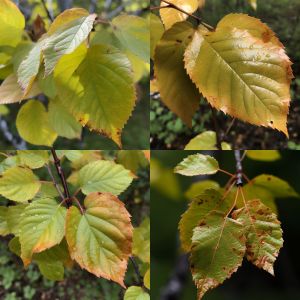Amberwood Tree: Difference between revisions
RaenAndaleio (talk | contribs) No edit summary |
RaenAndaleio (talk | contribs) No edit summary |
||
| Line 17: | Line 17: | ||
=== Protection === | === Protection === | ||
Today, the Amberwood Tree is a protected species, and its harvesting is strictly regulated by the magistry. While it is fine to collect fallen branches or scoop resin off the bark without harming the tree, only licensed wandmakers and apothecaries are permitted to harvest the tree. Despite its protected status, the Amberwood Tree remains a valuable and highly sought-after resource in the wizarding world, and its magical properties continue to fascinate and inspire generations of witches and wizards. | Today, the Amberwood Tree is a protected species, and its harvesting is strictly regulated by the magistry. While it is fine to collect fallen branches or scoop resin off the bark without harming the tree, only licensed wandmakers and apothecaries are permitted to harvest the tree. Despite its protected status, the Amberwood Tree remains a valuable and highly sought-after resource in the wizarding world, and its magical properties continue to fascinate and inspire generations of witches and wizards. | ||
=== Trivia === | |||
* Amberwood resin could be used as an ingredient for drawing ink used for Gyokumeiga. | |||
Revision as of 11:55, 24 April 2023
The Amberwood Tree (scientific name: Betula resinomagus) is a unique tree species found in temperate forests, especially in the British Isles. These trees are known for their ability to produce large quantities of resin, which has been used for centuries by witches and wizards for its magical properties.
Description
The Amberwood Tree is a slow-growing species that can reach up to 20 meters in height. Its leaves are thick and leathery, with a waxy texture that protects them from harsh weather conditions. The tree's bark is scaly and often deeply furrowed, providing a perfect surface for the sap to ooze out and harden into resin. The resin itself is sticky and translucent, with a golden-yellow hue that darkens with age.
Geographic Distribution
The Amberwood Tree belongs to the Betula family (birch trees). B. resinomagus, as well as several sub-species, can be found all over the temperate regions of the northern hemisphere, including Europe, Asia and North America.
Magic Properties
The resin extracted from the Amberwood Tree is used in the creation of various potions, and most notably, drawing ink. The wood, while difficult to work with due to its high resin content, is said to produce wands that excel at healing spells, charms and illusion.
The use of the tree's resin for magical purposes dates back to ancient times, with early records showing that Druids used the resin for its healing properties. The resin was also used as a thickening agent for drawing ink and in ritual practices, as it is a halucinogen if inhaled as incense. The ink made from this resin is said to possess powerful enchantments that enhance the magical abilities of the user. As the use of magic became more widespread, the demand for the Magic Resin Tree's resin increased, leading to the establishment of specialized groves for its cultivation.
Protection
Today, the Amberwood Tree is a protected species, and its harvesting is strictly regulated by the magistry. While it is fine to collect fallen branches or scoop resin off the bark without harming the tree, only licensed wandmakers and apothecaries are permitted to harvest the tree. Despite its protected status, the Amberwood Tree remains a valuable and highly sought-after resource in the wizarding world, and its magical properties continue to fascinate and inspire generations of witches and wizards.
Trivia
- Amberwood resin could be used as an ingredient for drawing ink used for Gyokumeiga.



